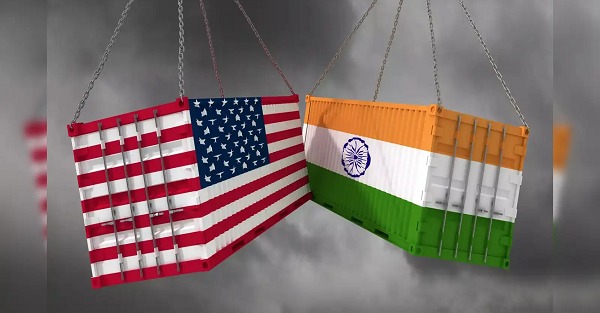Sudhangshu Sekhar Ganguly, J.@mdashThe facts leading to the present applications under Article 227 of the Constitution of India are the following:
The opposite parties Nos. 4 to 6 and Kenaram, the prodecessor of the opposite parties Nos. 1 to 3 purchased half of the disputed tank and its embankments from the opposite party No. 7 by a registered deed dated May 12, 1975. The opposite party No. 7 having sold the remaining 1/8th and 3/8th of the disputed property to the Petitioners in the two rules on May 26, 1975 and June 27, 1977, respectively; Kenaram and opposite parties Nos. 4 to 6 started cases u/s 24 of the West Bengal Non-agricultural Tenancy Act for purchasing up the said shares by pre-emption. The defence apart from others was that the disputed property formed part of an agricultural holding. The learned Munsif overruled the objection and allowed the Misc. Cases holding that the disputed property appertained to a non-agricultural tenancy. The Appeals from the decision of the learned Munsif were dismissed. Hence these revisional applications.
2. It is urged from the side of the Petitioners that the provisions of West Bengal Non-agricultural Tenancy Act cannot have any further application to the facts of this case. It is pointed out that under the definition of ''land'' as per Section 2(7) of the West Bengal Land Reforms Act, as it stood after the coming into effect of the West Bengal Land Reforms (Amendment) Act of 1972, tanks were specifically excluded. Therefore, a tank could be considered as non-agricultural land.
3. The definition of ''land'', however, was changed by new Section 2(7) inserted by the West Bengal Land Reforms (Amendment) Act, 1981, which has come into operation with retrospective effect from August 7, 1969. The new amended definition of ''land'' includes tanks. It is also pointed out that under the provisions of the new Section 3A inserted by the West Bengal Land Reforms (Third Amendment) Act, 1986, which came into force on May 12, 1989, with retrospective effect from September 9, 1980, Non-agricultural tenants have seized to exist and they have been transformed into raiyats, presumably under the West Bengal Land Reforms Act. It is urged that in the circumstances stated the impugned orders passed by the learned Munsif and as confirmed by the learned Appellate Court cannot be supported.
4. There is a lot of strength in this argument. Section 3A added to the West Bengal Land Reforms Act by the West Bengal Land Reforms (Amendment) Act of 1981 sought to do away with the rights of all non-agricultural tenants and under-tenants under the West Bengal Non-agricultural Tenancy Act, 1949, with effect from August 1969, subject to publication of a notification u/s 4 of the West Bengal Estates Acquisition Act. It was held in
5. Under the provisions of Section 3A the rights and interests of all non-agricultural tenants arid under-tenants under the West Bengal. Non-agricultural Tenancy Act, 1949, have vested in the State free from all encumbrances and the non-agricultural tenants and under-tenants in possession and within the statutory limits were to be treated as raiyats.
6. It is urged from the side of the opposite parties that Section 63(2) of the West Bengal Land Reforms. Act will save the situation in this case. Section 63(1) repeals provisions of the West Bengal. Non-agricultural Tenancy Act, 1949, as are repugnant to the provisions of the West Bengal Land reforms Act with effect from the date of coming into force of the West Bengal Land Reforms (Amendment) Act of 1981, i.e., with effect from August 7, 1969. Section 63(2) of the said Act, however, saves all proceedings pending on that day and it is provided that they would be continued or disposed of without being influenced by the West Bengal Land Reforms (Amendment) Act of 1981. It appears, however, that it has already been held in Niranjan Khanra''s case (Supra) that Section 63 could become effective only after the publication of a notification as required u/s 1(3) of the West Bengal Land Reforms Act. There is no indication from anywhere that such a notification has been published as yet. In that view of the matter I am unable to hold that the present cases started u/s 24 of the West Bengal Non-agricultural Tenancy Act would survive the coming into effect of the two Amendment Acts of 1981 and 1986.
7. The proper course in this case will be to pass an order as passed in Niranjan Khanra''s case (Supra). In, exercise of the powers under Act. 227 of the Constitution the present two applications for pre-emption are transferred-to the Court of the learned Munsif having territorial jurisdiction. The learned Munsif is hereby directed to treat the same as applications u/s 8 of the West Bengal Land Reforms Act, 1955 and to dispose of the same in accordance with the Act. The Respondents are hereby authorised to deposit the required amount u/s 8(1) of the West Bengal Land Reforms Act when moving their applications before the learned Munsif. The learned Munsif will also consider whether the Respondents are entitled to maintain their applications for pre-emption on the ground of being contiguous owners.
8. Send back the lower Court records to the Courts below at once along with copies of this order. The learned Munsif is hereby directed to dispose of the pre-emption cases as early as possible and in any case within a period of four months from the date of arrival of the records at his end. The evidence already on record--documentary as well as oral--shall be treated as evidence in the two cases and in view of the changed circumstances, if the parties feel that they should adduce some fresh evidence in support of their respective cases, they should be permitted to do that.
Rules made absolute remared to trial Court to decide on merits as directed.

